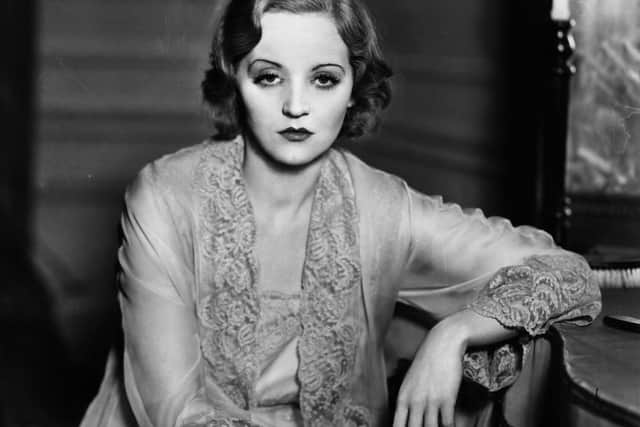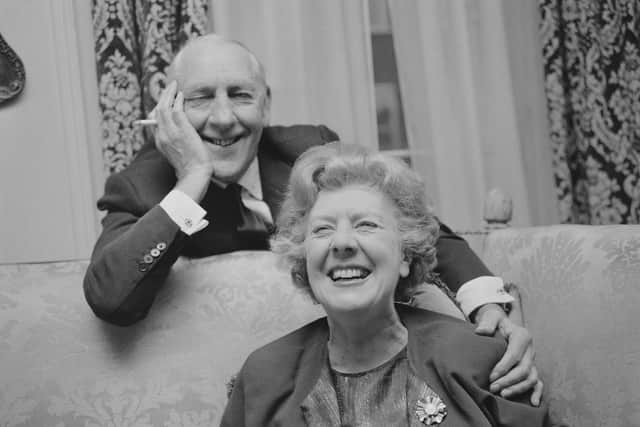The contrasting careers of American theatre stars Peggy O'Neill and Tallulah Bankhead
and live on Freeview channel 276
Lockdown hasn’t been too dismal in this Memory Lane cubby hole. It’s been a time of rediscovery.Before the recent articles about American pop stars coming to Blackpool in the 1950s I’d followed up notes made years ago about American actresses appearing here in the 1920s.
It was a decade before summer shows became established at the Opera House and the Grand Theatre. Both theatres had a weekly - sometimes fortnightly - change of plays, musicals and opera.
Advertisement
Hide AdAdvertisement
Hide AdIn that mixture would be new American plays heading for the West End and sometimes they had an American star.


They’re forgotten now, of course, unless you are a student of Blackpool’s rich theatrical heritage, so I’ve selected two ladies with contrasting backgrounds and careers.
One was the sweetest gal, the other was famous for scandalous behaviour.
Exactly one hundred years ago a comedy called Paddy - The Next Best Thing, adapted from a novel by Gertrude Page, was settling into a run of 867 performances at London’s Savoy Theatre
Advertisement
Hide AdAdvertisement
Hide AdBut Blackpool had seen it first, in an Easter week at the Opera House.


The star was Irish-American Peggy O’Neill (1902-1960), orphaned at the age of 12, a rising star in New York, and discovered in 1919 by British producer Robert Courtneidge, who brought to London to star in the play.
Robert was the father of Cicely Courtneidge, who became a major star of stage and screen, often in partnership with her husband, Jack Hulbert.
Press comments on Peggy O’Neill in her British debut included “Wonderful, magnetic personality - charming newcomer - bound to be a favourite over here.”
Advertisement
Hide AdAdvertisement
Hide AdShe was such a delight that the music hall song Sweet Peggy O’Neill was written about her.
Peggy spent the rest of her life in London and three more of her plays came to the Blackpool Opera House in five years.
She later became bankrupt and severe arthritis ended her career.
There was nothing sweet about Tallulah Bankhead (1902-1968) who came from a wealthy political family in Alabama.
Advertisement
Hide AdAdvertisement
Hide AdAfter stage roles in New York she spent eight years in London from 1923 and became a darling of society for her outrageous behaviour.
She was known to be promiscuous, smoked 120 cigarettes a day and had addictions.
Blackpool Grand Theatre audiences saw her in November, 1926, in the premiere tour of The Gold Diggers, Avery Hopwood’s satire on American “dames.”
She also came to the Opera House in May, 1929, in a comedy called Her Cardboard Lover.
Advertisement
Hide AdAdvertisement
Hide AdTallulah returned to America in 1931 and for the next 30 years won critical acclaim for her roles in films and on stage.
On a visit to London in 1964 she was Roy Plomley’s guest on radio’s Desert Island discs.
_____________
Did local cinema fans remember the old Waterloo Cinema, pictured in the Gazette’s Looking Back picture spot in Wednesday?
The Waterloo wasn’t a “first run” cinema and was one of the first to suffer the decline in audiences caused by television.
From the model of car in the foreground the photo would have been taken around the time of the cinema’s closure in 1959.